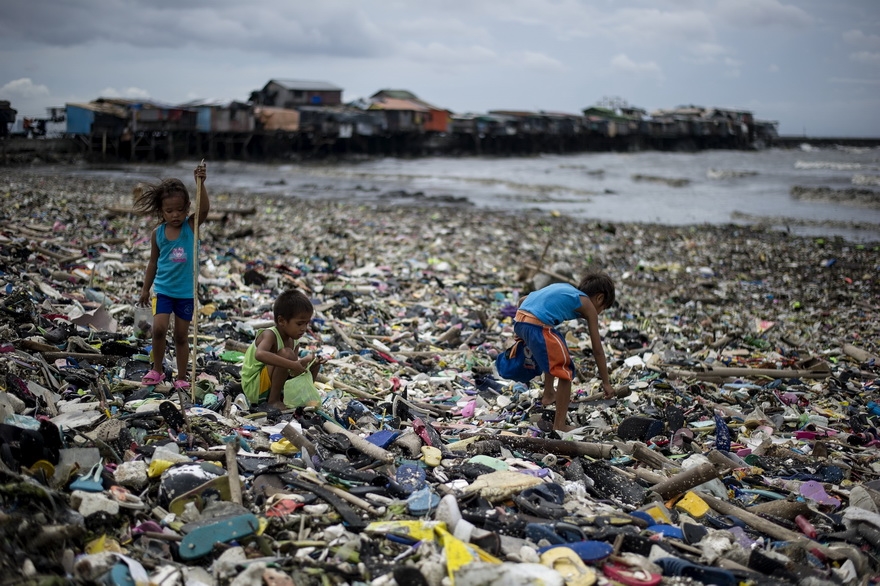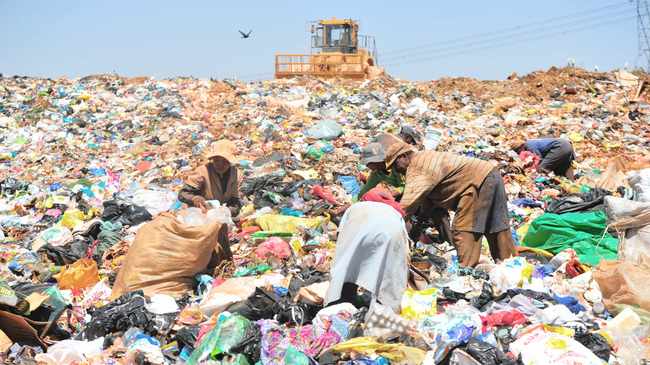Last month, we talked about how environmental racism affects communities around the United States. However, this phenomenon doesn’t just happen at the national level; throughout the world, developing countries are forced to bear the burden of the world’s pollution and the effects of climate change, even when they are the ones who contribute the least to these problems.
For example, the US and other industrial countries ship their trash overseas to avoid disposal costs and environmental impacts at home instead of managing it themselves. Industrialized countries produce about 98% of all hazardous waste, and the United States alone produced 258 million metric tons of municipal solid waste in 2017, the weight of about 780 Empire State Buildings in trash! The most populous country in the world, China, on the other hand, generated 220 million metric tons of MSW in 2017.


Many people have the misconception that after you throw your plastic bottles and recyclables into the green recycling bin, the garbage truck picks it up and the plastics are sent to a recycling facility in the United States. However, a majority of the time, the recyclables are sent overseas to avoid costs and to have the convenience of writing the materials off as “recycled.”
In the United States, boats full of plastic get written down as “recycled” once shipped to other countries for processing. The United States does not keep track of the materials once transported and there is no guarantee that the plastics are recycled or even make it to a recycling facility. As Malaysia’s Environment Minister stated: “Garbage is traded under the pretext of recycling.”

Up until 2018 when China drastically cut the importing of plastics, China was the main “dumping ground” for the world’s trash and recyclables. According to National Geographic, “after 25 years as the world’s salvage king, China refused to buy any recycled plastic scrap that wasn’t 99.5 percent pure–a move that upended a $200 billion global recycling industry with profound consequences on both sides of the world.” Once China introduced the National Sword policy to better protect their environment and focus on managing and recycling their own waste, they sent hundreds of boats full of trash back home where countries like the United Kingdom, Australia, and the United States scrambled to find new buyers as bales of trash piled up. However, the United States and other nations found other countries to take its trash– countries like India, Malaysia, and Indonesia where the plastics are often mismanaged.

Numerous investigations have shown that these countries often don’t have the infrastructure to properly manage the waste. Instead, impoverished families crudely sort, shred, and melt the plastic in unsafe conditions for cheap. The end result is low quality plastic and a host of environmental and health problems for the local community and developing country.


Shipping our trash to other countries where they can not handle the burden of waste is unjust and dangerous, both for our health and the environment. Trash is shipped to countries where we know it is mismanaged and where we know they can not handle the sheer volume of trash produced by the developed world. We should not wait for countries like China to outright refuse our waste and send it back for us to realize the negative impacts of using developing countries as our “dumping grounds.”
